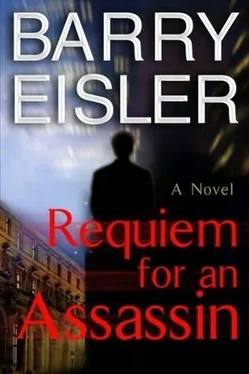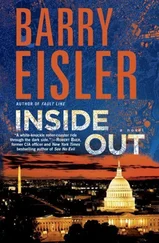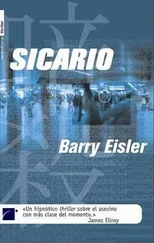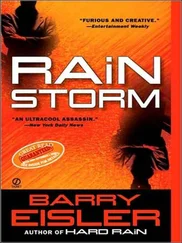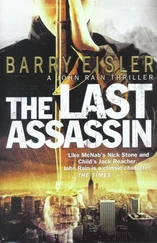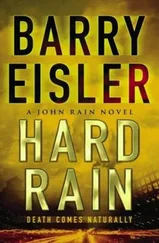She tried to think of something to say, some way of reasoning with him. But before she could, he turned and walked away. She watched, stunned. It was as though he’d already forgotten her.
I HAD HOPED to sleep on the thirteen-hour flight from Frankfurt, but for a long time I couldn’t. My mind was too preoccupied with Dox, with where I was going, with what I was walking into. And with Delilah. Maybe I’d been too…abrupt with her. She’d only been trying to help. I should have been grateful, should have found a way to show her I was grateful. But her intentions, good as they were, wouldn’t overrule her organization’s imperatives. When Gil had gotten killed in Hong Kong, he’d been hunting me. The same kind of thing could easily happen here. And although the Mossad’s reasons for wanting me dead-a job that had gone sideways in Manila before I finished it in Hong Kong-no longer applied, I wasn’t enthusiastic about reappearing on the organization’s radar screen, either.
Yeah, but Delilah herself could help. Discreetly. She’s helped before. Dox is her friend, too, like she said.
Bullshit. She’s compromised. Look how devoted she is to her organization. How many times have you tried to convince her to leave?
But I trust her. If I thought she would say anything about the two of us, to be safe I’d have to leave Paris. Leave her.
That’s different. She has no obligation to them about you. Hilger killed one of their own. Anything you tell her about Hilger, she’ll feed to them.
I put my fists to my temples and squeezed my eyes shut. Christ, it was like two different people, struggling inside my head. Trust and suspicion. Hope and fear. The rationalist and the iceman.
Eventually I slept. When I woke, we were landing in Saigon, Ho Chi Minh City only in name. I don’t think it was until I got off the plane that I really understood where I was, what I had returned to. I walked across the tarmac to a waiting bus, and the thing that brought it all home was the wet heat, the heat and that fecund earth smell, mud and competing tropical growth and rot. Then the doors closed and for a moment it was gone. But of course it was all still there. It always had been.
Outside the airport was tumult. Crowds and honking taxis and the wet heat again. The weirdly familiar cadences of the language itself, tonal like Chinese but softer, lower-pitched. I smelled diesel and spices and that jungle smell again, the mud that had caught in my mind the way it had once stuck in my boots.
I doubted Hilger could have put anyone in position quickly enough to intercept me here. Even if he’d wanted to, the way I’d traveled, he couldn’t have known quite when I was arriving. And even if he’d guessed right, the airport, with all its cameras and other security, would be a poor place for a hit. Still, I haven’t survived this long by taking anything for granted, and the first thing I wanted to do was make sure I was clean.
I shouldered my overnight bag and asked a taxi driver who seemed to speak decent English to take me downtown. I stayed with a Japanese persona and used a Japanese accent. With Hilger I’d be American. At all other times I wanted to be Japanese. The two personas have always been subtly distinct for me, and slipping from one to another would make me harder to describe, and therefore to track.
I watched behind us as we left the airport. Several cabs followed us into the thick traffic. I waited three minutes, then said, “Wait, go back, go back! Forgot sunglasses!”
The driver looked at me, unsure. “Sunglasses!” I said again, gesturing to my eyes. “Airport, please.”
He nodded, then turned into the oncoming traffic with a U-turn that for an older passenger might have meant a coronary. I watched behind us as we returned to the airport. No one, not even one of the motorcyclists in their hundreds, replicated the U-turn.
I paid the driver five dollars-still the street’s preferred currency, and about what the trip downtown would have cost had we completed it-went back into the terminal, and waited inside, watching. No one tried to follow me in, and I saw no one setting up outside. I found another cab and had it take me to the Rex Hotel.
In the thick traffic, the five-mile trip took almost an hour. I sat in the backseat, jostled by the occasional pothole, surrounded by the buzzing and honking of armadas of motorcycles, with nothing to do but watch and think.
I hadn’t ever intended to come back here. It’s not that I hated these people, although there are plenty of soldiers who still do-hell, there are American World War II vets who still hate the Japanese. I hated them at the time, yes. I wanted to hate them, to prove that despite my Asian face I was different, I was American, more American even than the soldiers who suffered and fought alongside me.
And there were plenty of opportunities to hate, plenty of reasons. The Vietnamese were masters of psychological torture. They could turn anything, any harmless, neutral thing in your environment, into something deadly, until the world itself started to seem like your enemy. They booby-trapped pens, C-ration cans, the bodies of dead soldiers. They hid trip wires behind branches and mines under the dirt. They would lay spikes alongside a road and then ambush you so when you dove for cover you’d be impaled.
Imagine losing a buddy that way, one of the men whose smile could always cheer you up, who’d saved your life, who had your back no matter what. Imagine how you would hate. But then imagine this. Before you’ve even had a chance to process what’s happened, while your uniform is still soaked with your friend’s hot blood, two guys you’ve never seen before and never will again have zipped him into a bag and tossed him rudely onto a medevac chopper, and an instant later he’s gone, so gone you wonder where all that blood could have come from. There’s no funeral, no burial, just a grief so confusing and bitter you start to choke on it, and the only thing that saves you from being paralyzed by that grief, being killed by it, is a rage so white-hot the sane can barely begin to imagine it.
The rage has a purpose, you see: it offers an outlet. But it carries a heavy price. You do things you couldn’t have imagined doing, couldn’t have imagined anyone doing, things you can’t talk about afterward, not even with the men who acted with you. In that state, the things that make you human, your empathy, even your fear, they’re gone. You feel like you’ve died already, and you’re right in a way, part of you has died and will never come back. At that point, being killed is almost a mercy. Because if you survive it, if you survive your own death, the path back to life is almost impossible. After the war, there were men, hollowed-out men whose means of negotiating the world had been reduced to alternating silence and rage, who would try with earnest futility to explain themselves that way. “I died there,” they would say.
I thought that, too, for a long time after. But now, watching from the back of a cab images of that stark country that had swallowed up my innocence, I thought, No, I didn’t die here. Vietnam is where I was born.
And I’d never left. Not really. I’d been back to the States, then all around the world, then finally settled, at least for a time, in Japan. But the person who was born here had never grown up, never fundamentally changed. His body had wandered, but his mind had remained in the place that had formed it.
Once, when I told Midori I wanted out of the business, she had asked me how hard I was trying. I felt my jaw clench at the memory. What horror had she ever endured? How could she, how could anyone who wasn’t there, imagine the way war changes you?
Losing people, and not being able to properly grieve them, shrinks your world. You try to avoid attachments, anything that could hurt if you lose it. You start to say don’t mean nothing about everything, the important things especially. You learn that only a few people can be trusted, fewer and fewer, in fact. You feel used by your own government. The equipment sucks, the orders suck, you know the politicians don’t give a shit if you live or die as long as they’re reelected. And then, if you’re special, the way I apparently was, you get sent on a certain mission, where you can kill your own out-of-control best friend: my blood brother Crazy Jake, still the most dangerous man I’ve ever known. That brings it all together: the horror, the stifled grief, the silence, the distrust, the raging, all-consuming hatred.
Читать дальше
